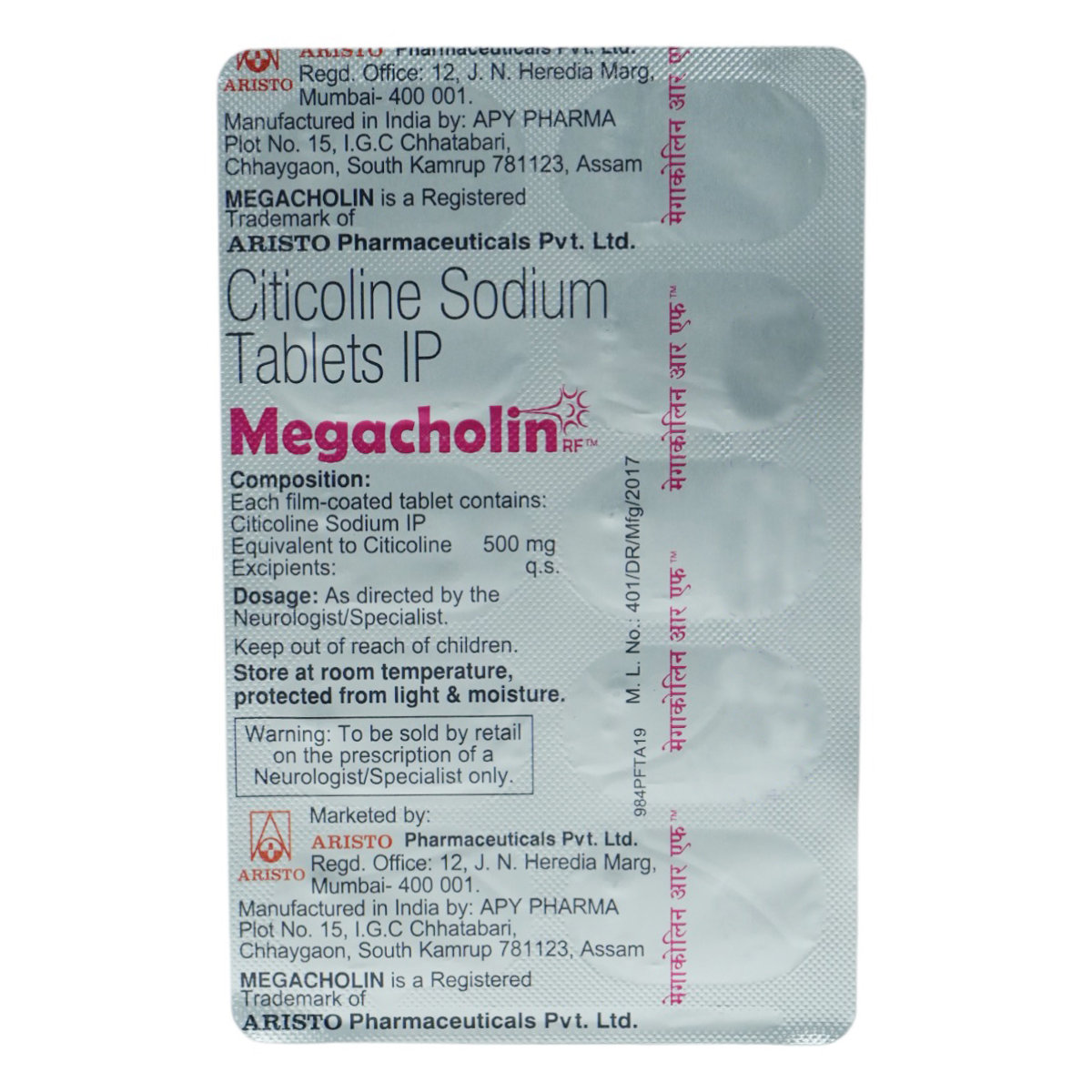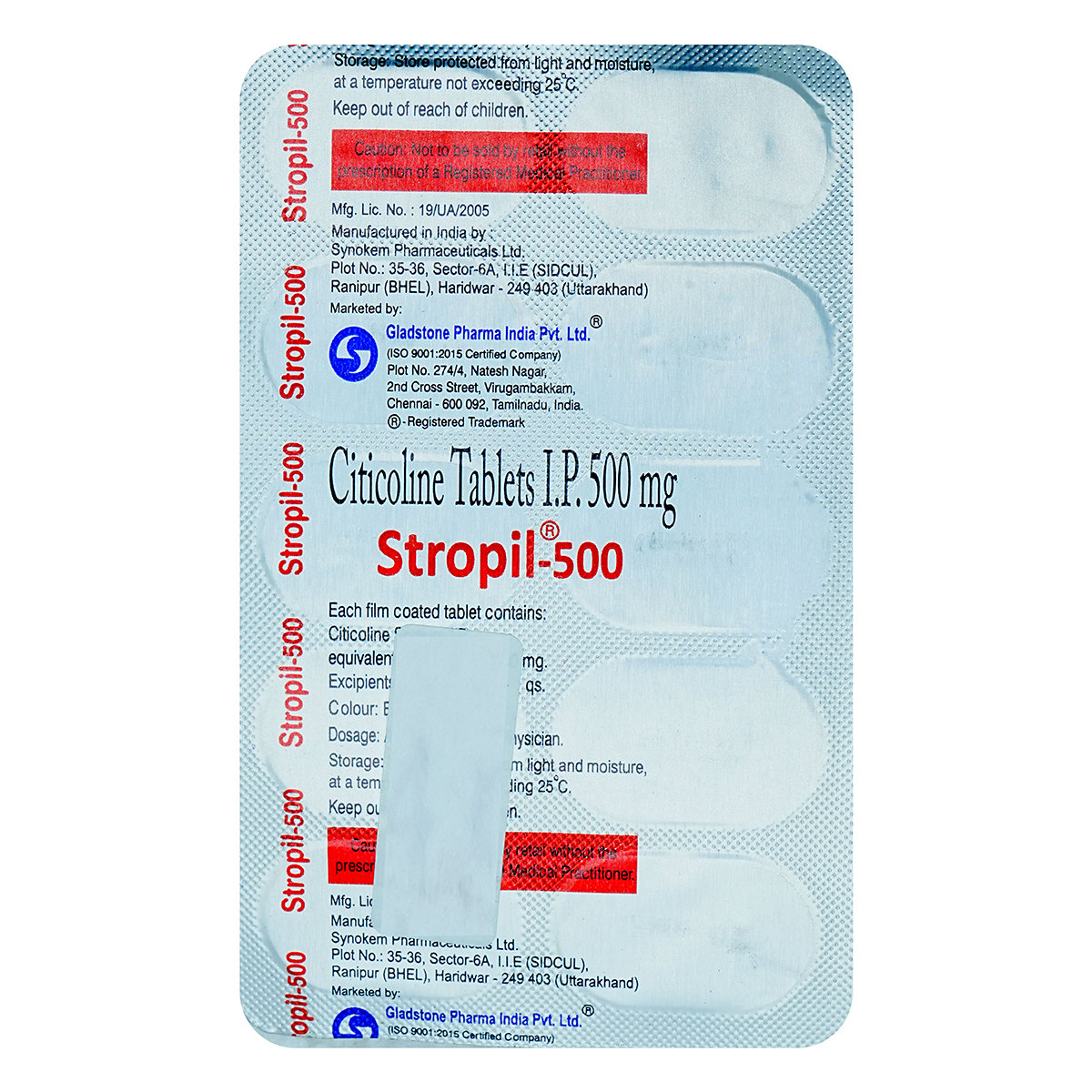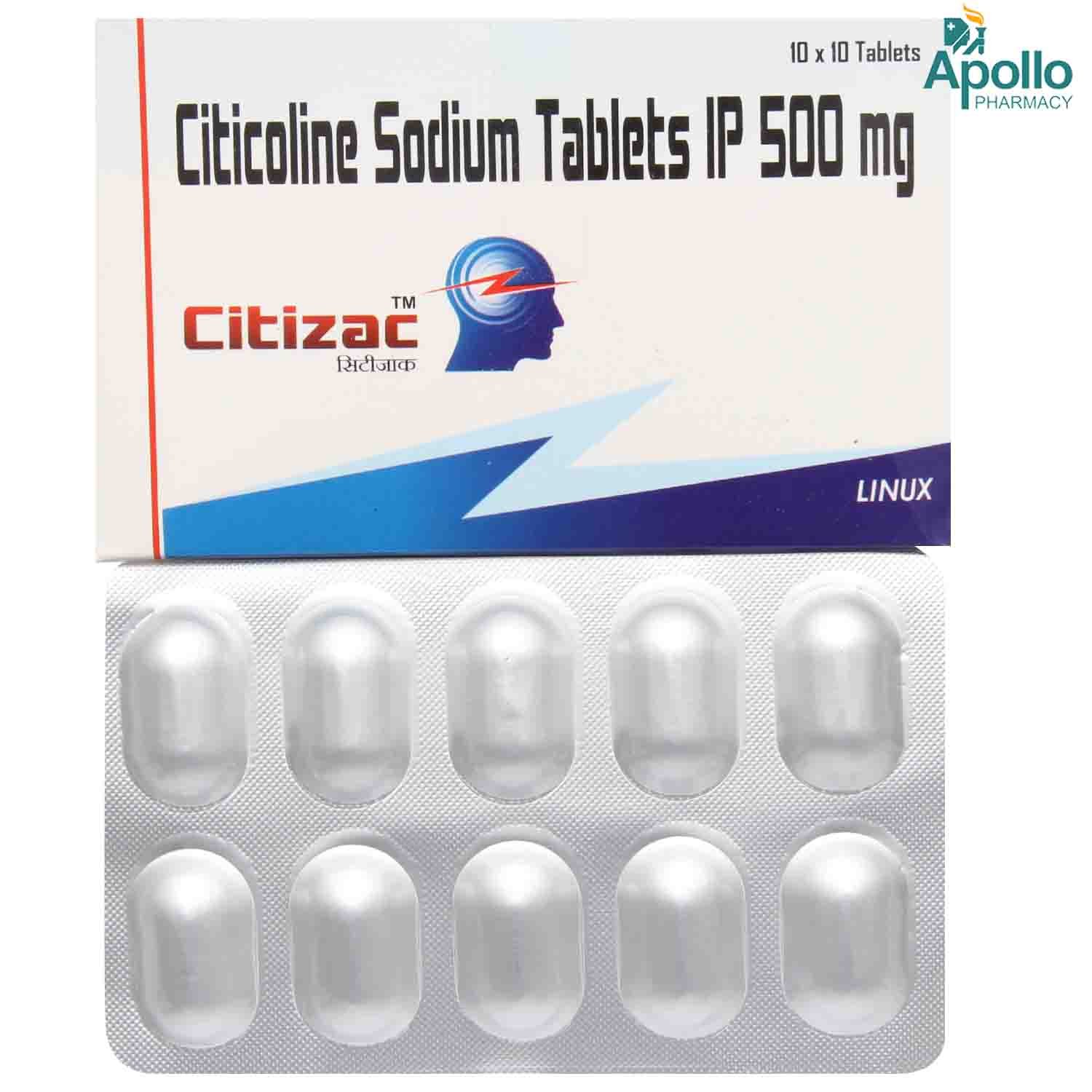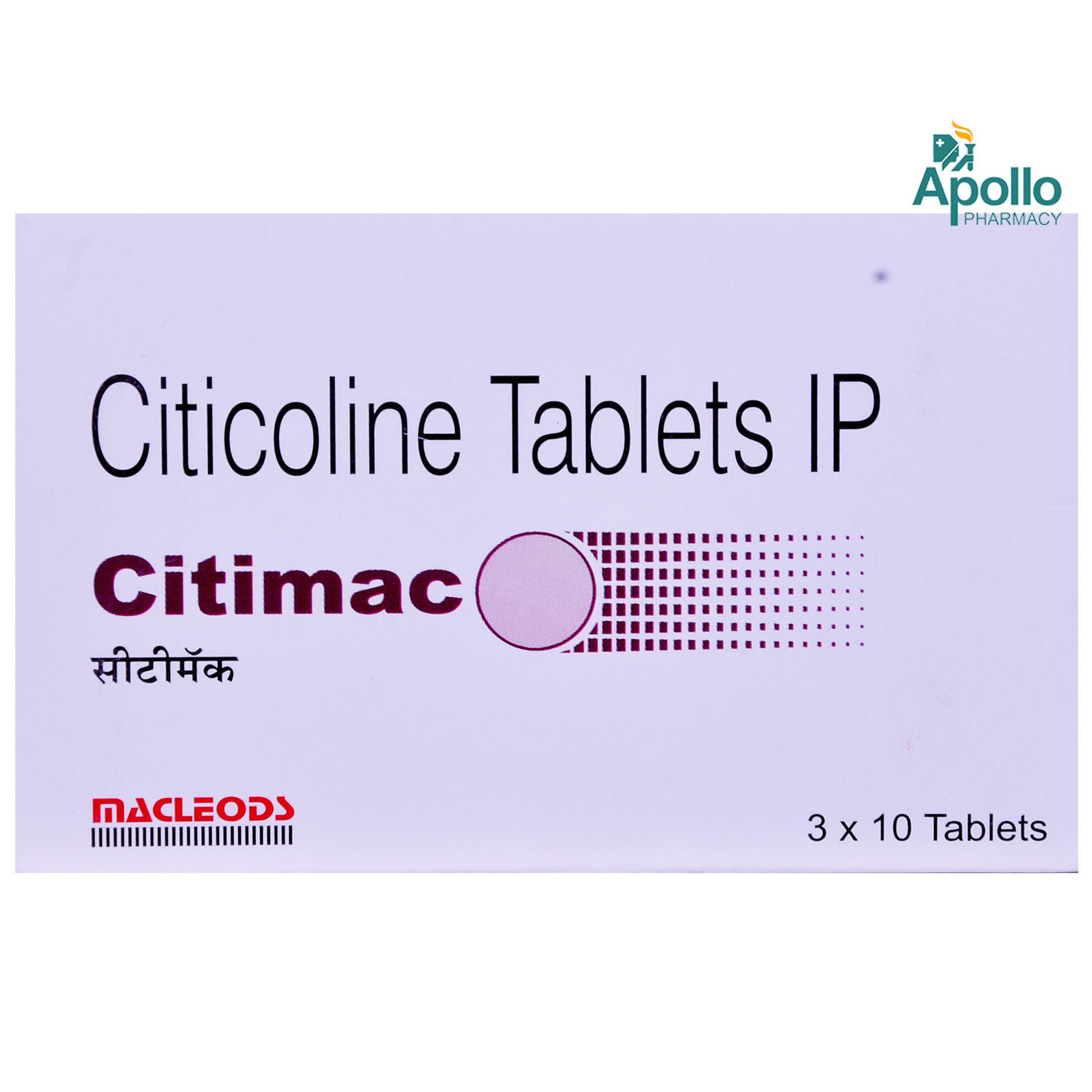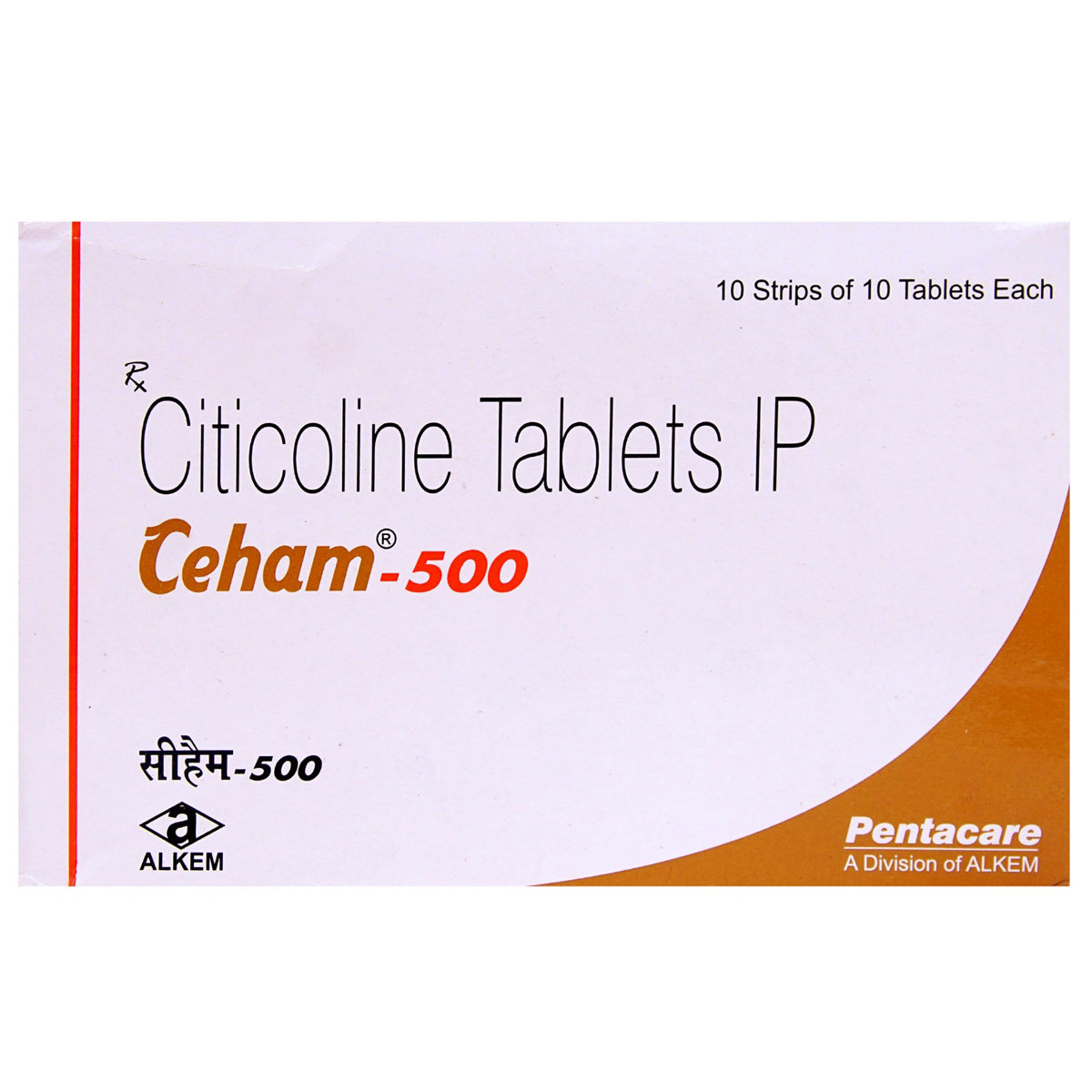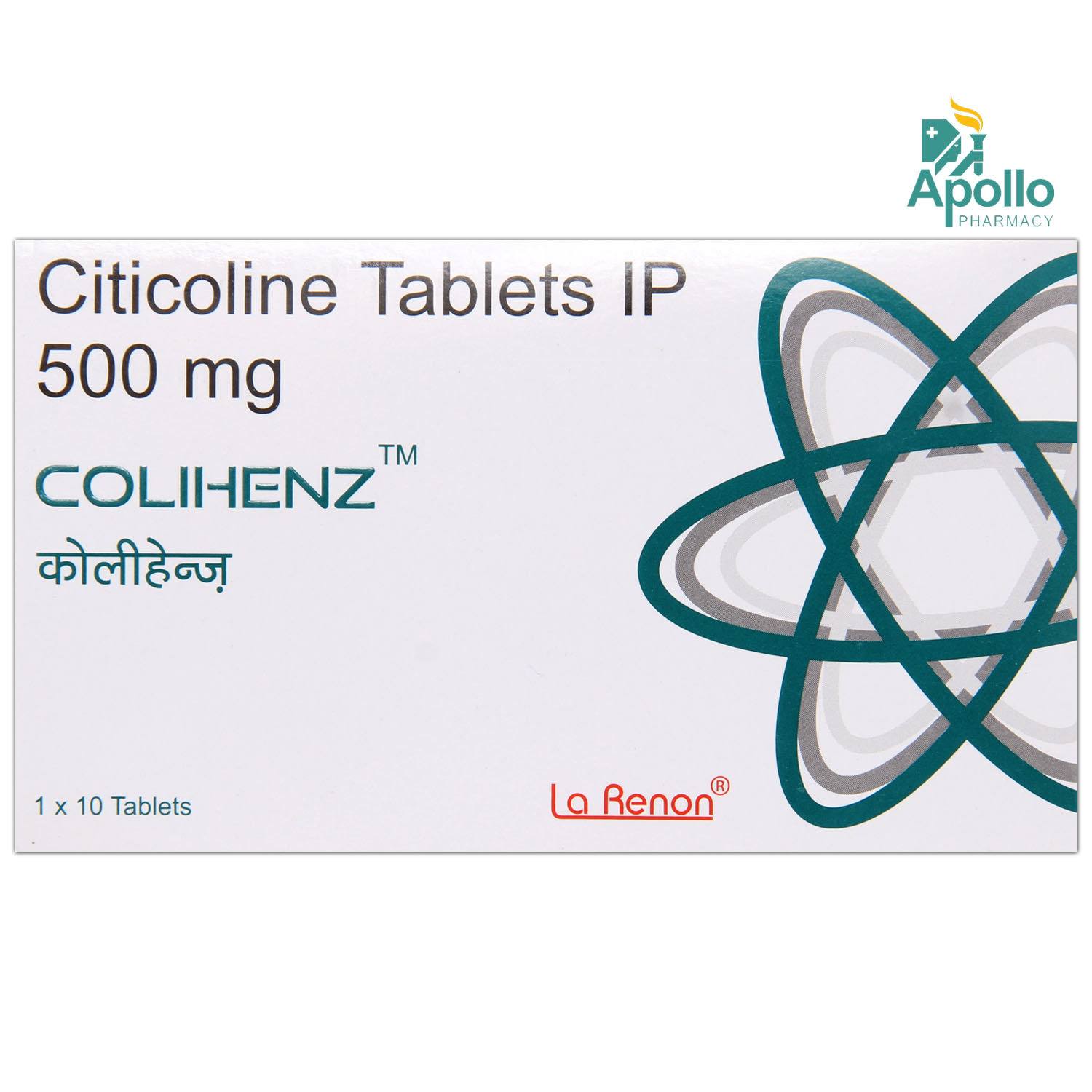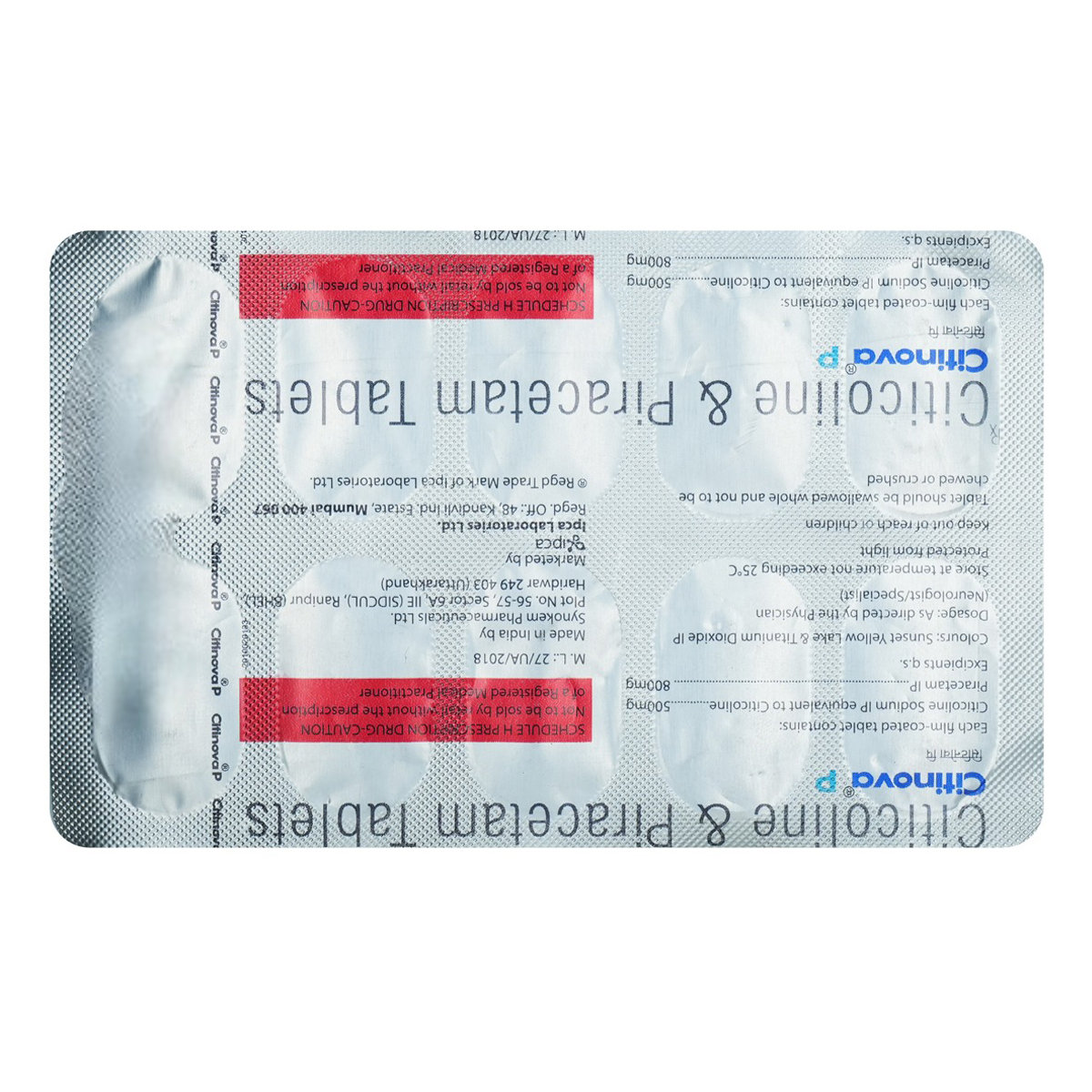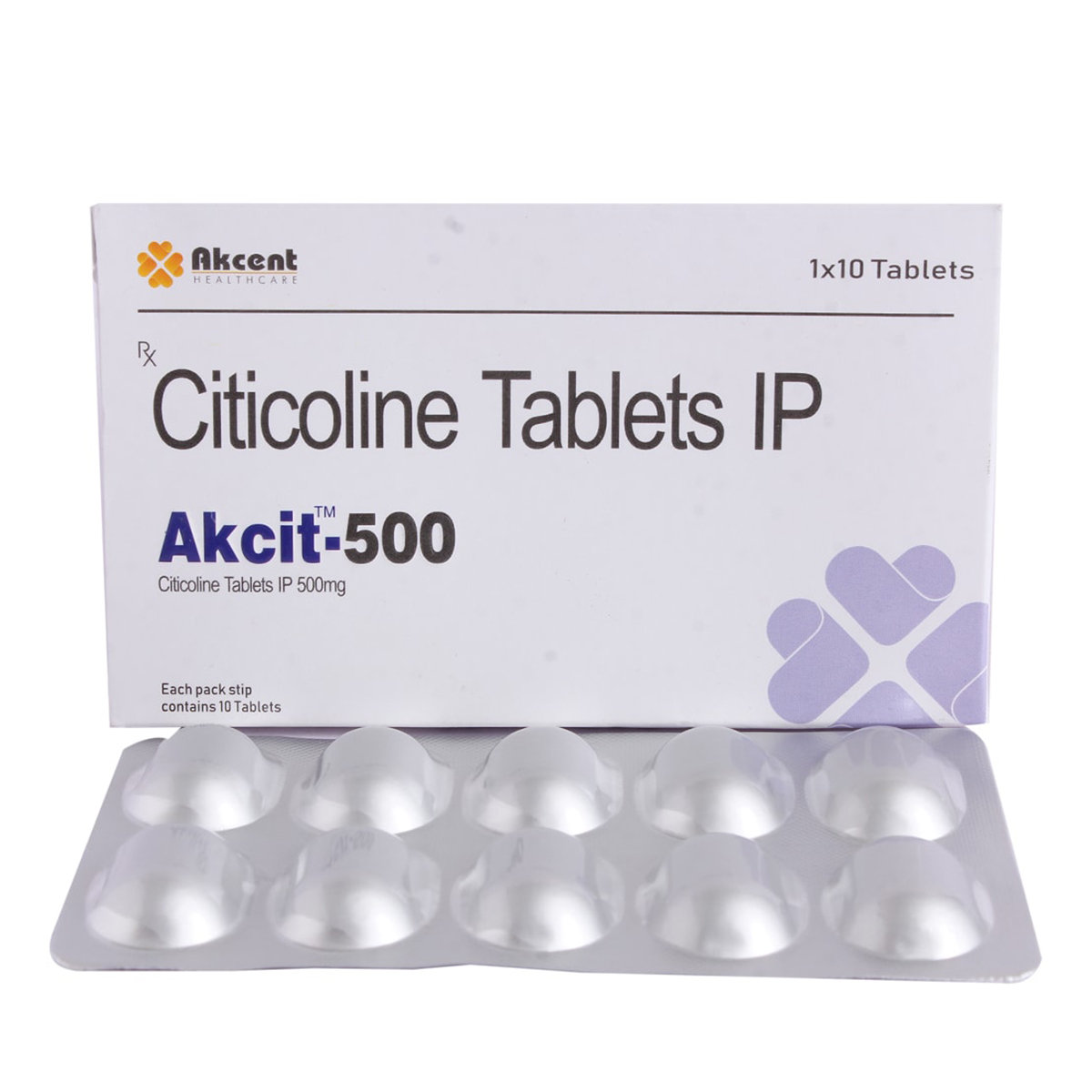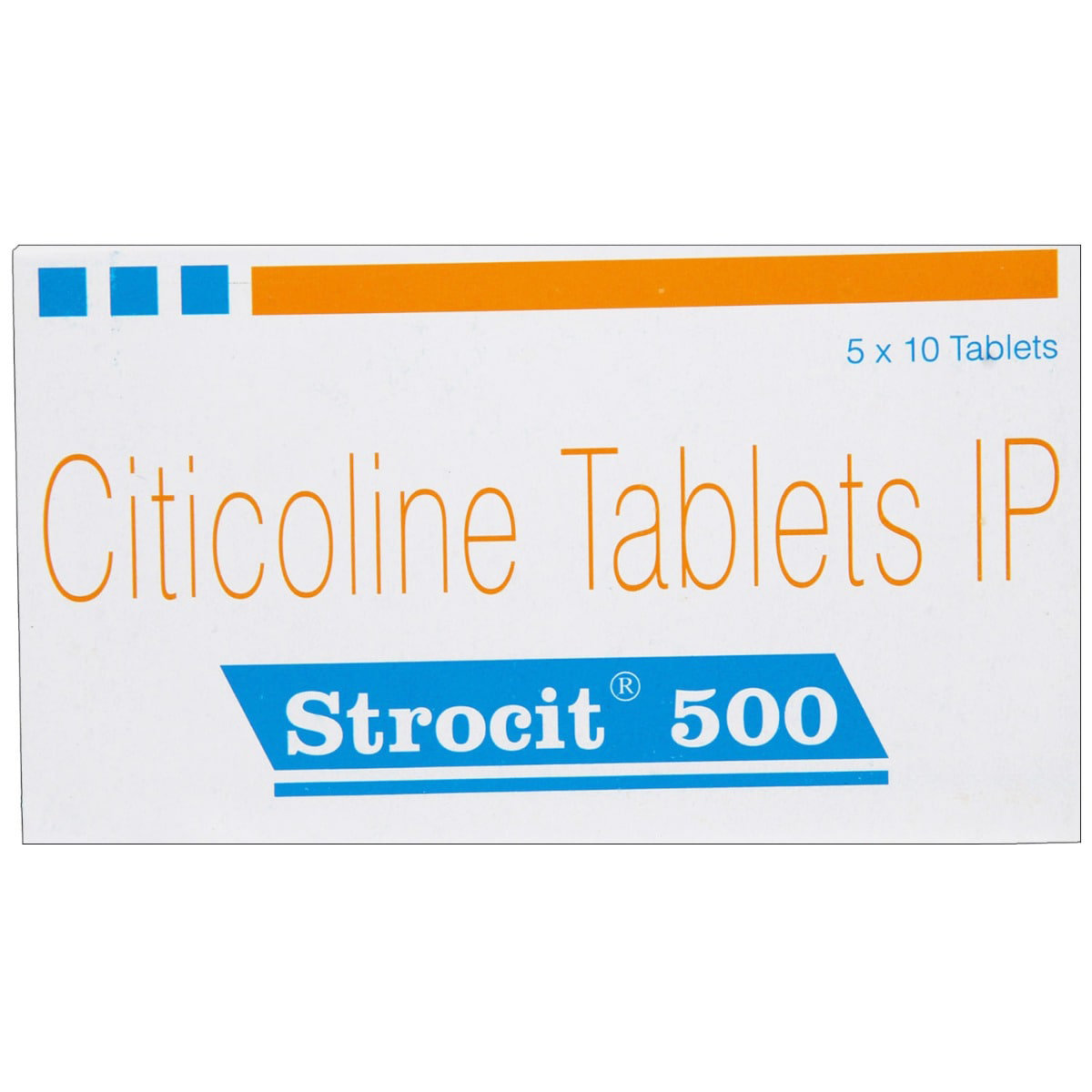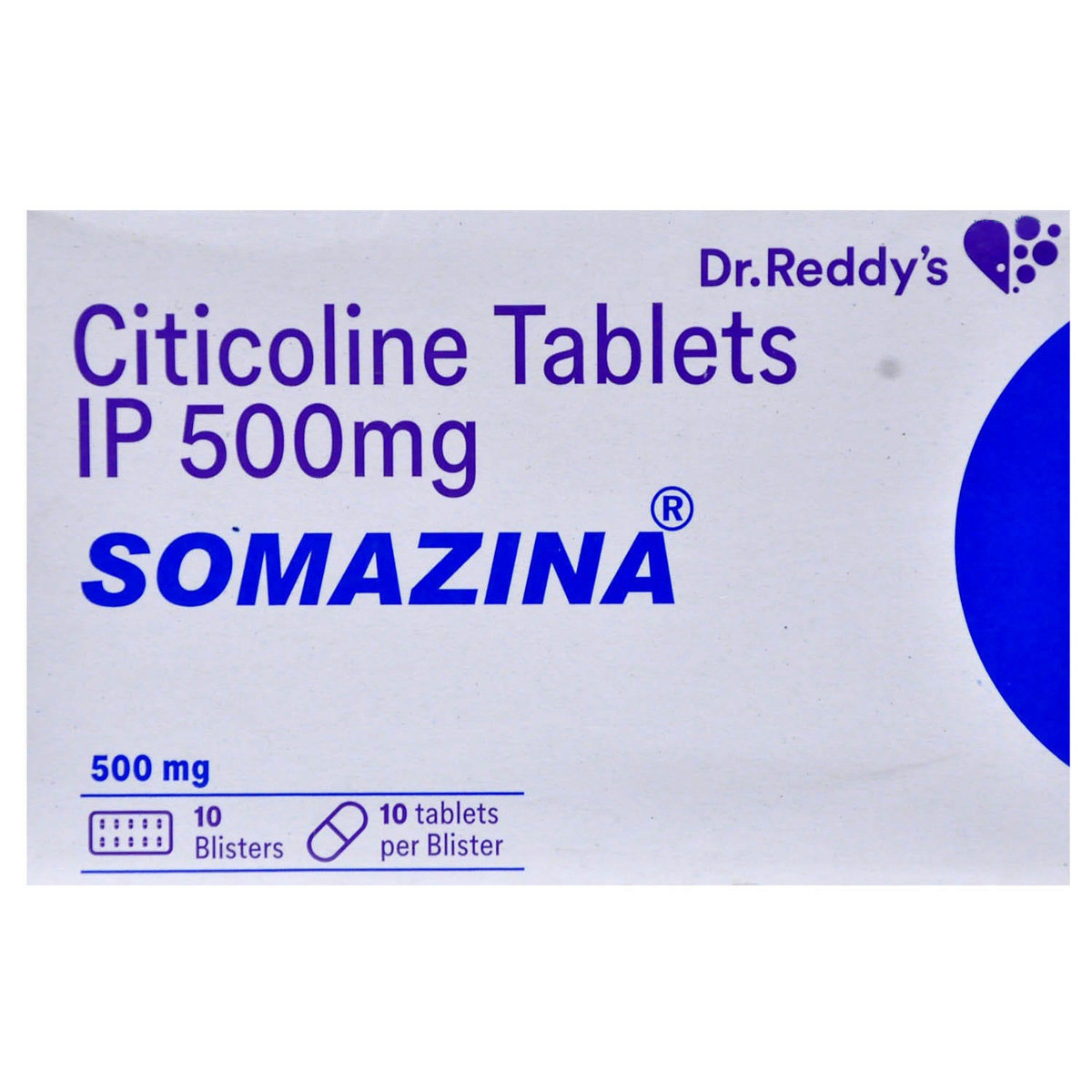- Home
- Citimet Tablet
Citimet Tablet Substitute
Citimet Tablet Substitute
Medicine Composition:
CITICOLINE-500MGAll Substitutes & Brand Comparisons
RX
Megacholin RF Tablet 10's
Aristo Pharmaceuticals Pvt Ltd
₹450
(₹40.5 per unit)
24% CHEAPERRX
Citiben-500 Tablet 10's
R B Pharmaceuticals
₹515.5
(₹46.4 per unit)
13% CHEAPERRX
Citisense 500 Tablet 10's
Adonis Laboratories Pvt Ltd
₹561.5
(₹50.54 per unit)
5% CHEAPERRX
N-Citi 500 Tablet 10's
Reliance Formulation Pvt Ltd
₹562.5
(₹50.63 per unit)
5% CHEAPERRX
Out of StockCitialfa-500 Tablet 10's
Alniche Life Sciences Pvt Ltd
₹569
(₹51.21 per unit)
4% CHEAPERRX
Stropil 500 Tablet 10's
Gladstone Pharma India Pvt Ltd
₹628
(₹56.52 per unit)
5% COSTLIERRX
Civae-500 Tablet 10's
Saltvae Pharmaceuticals Pvt Ltd
₹655
(₹58.95 per unit)
10% COSTLIERRX
Citizac Tablet 10's
Abbott India Ltd
₹668
(₹60.12 per unit)
12% COSTLIERRX
Citimac Tablet 10's
Macleods Pharmaceuticals Ltd
₹687.5
(₹61.88 per unit)
15% COSTLIERRX
Ceham 500 Tablet 10's
Alkem Laboratories Ltd
₹703
(₹63.27 per unit)
18% COSTLIERRX
Colihenz Tablet 10's
La Renon Healthcare Pvt Ltd
₹712.5
(₹64.13 per unit)
19% COSTLIERRX
Citinova 500 Tablet 10's
Ipca Laboratories Ltd
₹757.5
(₹68.18 per unit)
27% COSTLIERRX
Akcit 500 Tablet 10's
Akcent Healthcare India Pvt Ltd
₹759
(₹68.31 per unit)
27% COSTLIERRX
Strocit 500 Tablet 10's
Sun Pharmaceutical Industries Ltd
₹761
(₹68.49 per unit)
27% COSTLIERRX
Somazina 500 mg Tablet 10's
Dr Reddy's Laboratories Ltd
₹852.5
(₹76.73 per unit)
43% COSTLIER

When Should You Consider Switching from Citimet Tablet ?
Patients may explore substitutes in the following scenarios:
- High monthly cost of Citimet Tablet
- Non-availability in local pharmacies
- Generic recommendation by a doctor
- Side effects or better tolerability with alternatives
What to Know Before Switching
Before you switch from Citimet Tablet to another medicine, here are some important points to keep in mind:
Same salt, different brands:
Most substitutes contain the same active ingredient - CITICOLINE-500MG, but the fillers, coating, or manufacturing quality may vary slightly.
Consult your doctor first:
Even if the salt is the same, your doctor can confirm if the substitute is right for your condition, dosage, and health history.
Watch out for allergies or reactions:
Some people may react differently to certain brands due to inactive ingredients. If you notice any side effects, inform your doctor immediately.
Price ≠ effectiveness:
A lower-priced substitute doesn't mean it's less effective. Many generic medicines work just as well as branded ones.
Check the dosage form and strength:
Always match the substitute’s strength (e.g., 5mg, 10mg) and form (tablet, capsule, syrup) with what your doctor prescribed.
Uses
Citimet Tablet is used in the treatment of stroke, head trauma, Alzheimer's disease, Parkinson's disease, and glaucoma. Its detailed uses are as follows:
- Ischemic Stroke: Citimet Tablet is used during both the acute and recovery stages of ischemic stroke. It helps protect nerve cells from damage, supports cell membrane repair, and improves blood flow to the brain.
- Head Trauma or Brain Injury: Citimet Tablet aids in restoring brain function following head injury by reducing symptoms like memory loss, dizziness, disorientation, and impaired concentration.
- Cognitive Disorders: Citimet Tablet helps slow cognitive decline associated with Alzheimer's disease and vascular dementia by improving blood flow to the brain.
- Parkinson's disease: Citimet Tablet may be used alongside other medications to improve motor and cognitive symptoms in individuals with Parkinson's disease.
- Vision Disorders: Citimet Tablet helps enhance visual performance in patients with glaucoma or other optic nerve disorders by supporting nerve cell function.
Medicinal Benefits
- Citimet Tablet contains 'Citicoline,' which belongs to the class of ‘psychostimulants.’
- It is used to promote brain health. It increases the activity of the central nervous system (brain and spinal cord).
- It is used to treat stroke, head injury, Alzheimer’s disease, Parkinson’s disease, and glaucoma.
- It protects the brain from neurotoxicity (damage to the brain).
- It acts as a precursor for phospholipids (present in the outer membrane of the nerve cell) and also stimulates phospholipid synthesis in the brain.
- It also stimulates blood flow and oxygen consumption in the brain.
- This promotes brain activity and enhances cognition, memory, and cognitive function in patients with progressive brain disorders.
- It accelerates the recovery rate in patients with neurological diseases (diseases affecting the brain).
- It can improve recovery in patients with disturbance in consciousness, in patients with head injury or any other problems associated with the brain, and who have undergone surgery.
FAQs
The substitutes of Citimet Tablet contain the same active salt(s) - CITICOLINE-500MG. However, they may differ in price, manufacturing quality, and inactive ingredients. Speak to your doctor to find a suitable option.
Switching to a generic substitute medicine in the place of Citimet Tablet is often possible if it has the same salt, strength, and dosage form. But always check with your doctor before making any changes to your medication.
Generics versions of Citimet Tablet are typically more affordable because they don’t include the original brand's research, development, and marketing costs. They contain the same active ingredient and are approved for safety and effectiveness.
Most people don’t notice any difference. However, some may react to different fillers or coatings. If you notice any unusual symptoms after switching, consult your doctor.
Make sure the new medicine has the same active salt, strength, dosage form. Always confirm the change with your doctor or pharmacist.
Substitutes of Citimet Tablet meet the same safety and efficacy standards as Citimet Tablet , but small differences in absorption or formulation can exist. A doctor can help you choose the right one for your needs.
Yes. Substitutes of Citimet Tablet may vary in color, size, or shape due to differences in manufacturing and branding, but this does not affect how they work.
Yes, it’s generally safe to switch between multiple substitutes of Citimet Tablet if they have the same salt and strength. However, always inform your doctor so they can monitor how your body responds.
Yes, many people safely use substitutes of Citimet Tablet for long-term treatment. Just ensure it’s done under medical supervision.
If your symptoms stay under control or lab results remain stable, the substitute for Citimet Tablet is likely working well. Regular follow-ups with your doctor are important.
Absolutely. Even with the same salt, small differences can affect how your body responds when switching from Citimet Tablet to its substitute. Always consult your doctor before switching.
Citimet Tablet is used to treat stroke, head trauma or injury, Alzheimer’s disease, Parkinson’s disease, and glaucoma.
Citimet Tablet contains 'Citicoline’, a psychostimulant or nootropic used to nourish and minimize damage to the nerve cells in various conditions associated with the brain. It increases the activity of the central nervous system (brain and spinal cord). It regenerates nerve cells by promoting the synthesis of phospholipids (forms neuronal membrane) in the brain. It improves learning, memory, judging, and thinking processes. It can improve recovery in patients with disturbance in consciousness in patients with head injury or any other problems associated with the brain and who underwent surgery.
Citimet Tablet can cause insomnia (sleeplessness). However, not everybody taking Citimet Tablet will experience this side effect. Inform your doctor if you notice sleep disturbances after starting Citimet Tablet . Your doctor may adjust the dosage to minimize its impact on sleep.
Citimet Tablet is possibly safe and may not show any toxic side effects. It is usually well-tolerated in patients when given in therapeutic doses (dose required to treat the disease).
Citimet Tablet can be taken for the long-term when advised by a doctor. It can considerably improve memory, thinking, and behavioral skills when taken long-term in patients with brain disorders.
Parkinson's disease is a progressive brain disorder that occurs due to a decrease in dopamine (a hormone responsible for motor function or movements) levels in the brain. The symptoms include tremors, impaired balance, difficulty speaking, decreased movement, and changes in writing.
Citicoline is chemically identical to the cytidine-diphosphocholine (CDP-choline). CDP-choline is naturally present in the body, whereas citicoline is available as a dietary supplement.
There are no studies on the effect of alcohol on Citimet Tablet . However, it is advised to avoid alcohol consumption since Citimet Tablet is prescribed for Alzheimer’s disease, stroke, Parkinson’s disease, head injury, and age-related memory impairment, and alcohol worsens neurological conditions.
No, students should not take Citimet Tablet because research indicates that Citimet Tablet is effective only in age-related memory problems, in Alzheimer’s disease and memory problems associated with long-standing stroke. Furthermore, there is information on the use of Citimet Tablet in children.
In cases of stroke caused due to blood clots, Citimet Tablet can help them recover completely within 3 months. Also, giving Citicoline either intravenously (injecting into the vein directly) within 12 hours of having a stroke or daily for 7 days following the stroke can help the patient recover sooner.
Yes, Citimet Tablet has neuroprotective properties that could help improve memory and cognitive functions in people with neurological impairments.
Citimet Tablet may cause side effects such as nausea, headache, diarrhea, insomnia (trouble sleeping), blurred vision, and an increase or decrease in heart rate. Most of these side effects do not require medical attention. However, if the symptoms persist or worsen, consult your doctor immediately.
You are recommended to avoid using Citimet Tablet if you are allergic to citicoline. If you have hypotension (low blood pressure), seizure disorders, heart disease, or are at risk of a hemorrhagic stroke, use it cautiously.
You are recommended to consult a doctor before taking other medicines with Citimet Tablet to avoid drug interactions.
Store Citimet Tablet in a cool and dry place at room temperature. Keep it out of reach of children.
Buy best C.n.s Drugs products by
Intas Pharmaceuticals Ltd
Sun Pharmaceutical Industries Ltd
Torrent Pharmaceuticals Ltd
Alkem Laboratories Ltd
Alteus Biogenics Pvt Ltd
Abbott India Ltd
Cipla Ltd
Micro Labs Ltd
Lupin Ltd
Tripada Healthcare Pvt Ltd
D D Pharmaceuticals Pvt Ltd
Ipca Laboratories Ltd
Arinna Lifesciences Ltd
Icon Life Sciences
Linux Laboratories Pvt Ltd
Mankind Pharma Pvt Ltd
Cnx Health Care Pvt Ltd
East West Pharma India Pvt Ltd
La Renon Healthcare Pvt Ltd
Eris Life Sciences Ltd
Emcure Pharmaceuticals Ltd
Leeford Healthcare Ltd
Talent India Pvt Ltd
Tas Med India Pvt Ltd
Consern Pharma Ltd
Macleods Pharmaceuticals Ltd
Zydus Healthcare Ltd
Jagsam Pharma
Troikaa Pharmaceuticals Ltd
Dr Reddy's Laboratories Ltd
Ikon Pharmaceuticals Pvt Ltd
Sigmund Promedica
Matias Healthcare Pvt Ltd
Aristo Pharmaceuticals Pvt Ltd
Ardent Life Sciences Pvt Ltd
Shine Pharmaceuticals Ltd
Zydus Cadila
Theo Pharma Pvt Ltd
Wockhardt Ltd
Propel Healthcare
Lifecare Neuro Products Ltd
Crescent Formulations Pvt Ltd
Reliance Formulation Pvt Ltd
Mesmer Pharmaceuticals
Matteo Health Care Pvt Ltd
Morepen Laboratories Ltd
Capital Pharma
Neon Laboratories Ltd
Ajanta Pharma Ltd
Med Manor Organics Pvt Ltd
Lyf Healthcare
Msn Laboratories Pvt Ltd
Sanix Formulation Pvt Ltd
Akumentis Healthcare Ltd
Brainwave Healthcare Pvt Ltd
Pulse Pharmaceuticals
Hetero Healthcare Pvt Ltd
Sanofi India Ltd
Solvate Laboratories Pvt Ltd
Cyrus Remedies Pvt Ltd
Elder Pharmaceuticals Ltd
Novartis India Ltd
Psyco Remedies Ltd
Medishri Healthcare Pvt Ltd
Alniche Life Sciences Pvt Ltd
Crescent Therapeutics Ltd
Hbc Life Sciences Pvt Ltd
Mova Pharmaceutical Pvt Ltd
Quince Lifesciences Pvt Ltd
Cadila Healthcare Ltd
Prevego Healthcare & Research Pvt Ltd
Tripada Lifecare Pvt Ltd
Alembic Pharmaceuticals Ltd
Talin Remedies Pvt Ltd
Kivi Labs Ltd
Serotonin Pharmaceuticals Llp
Solis Pharmaceuticals
Glenmark Pharmaceuticals Ltd
Infivis Life Care
Trion Pharma India Llp
A N Pharmacia Laboratories Pvt Ltd
Gagnant Healthcare Pvt Ltd
Primus Remedies Pvt Ltd
Crescent Pharmaceuticals
Glarizonto Pharma Pvt Ltd
Knoll Healthcare Pvt Ltd
Zuventus Healthcare Ltd
Arches Pharmaceuticals
Cadila Pharmaceuticals Ltd
Lia Life Sciences Pvt Ltd
Lyceum Life Sciences Pvt Ltd
USV Pvt Ltd
Vasu Organics Pvt Ltd
Wallace Pharmaceuticals Pvt Ltd
Corona Remedies Pvt Ltd
Glial Life Science Llp
Lincoln Pharmaceuticals Ltd
Maneesh Pharmaceuticals Ltd
Pfizer Ltd
Suraksha Pharma Pvt Ltd

